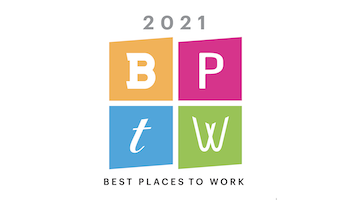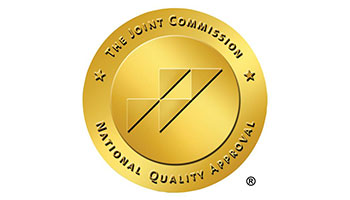By: Mandy Davis
Fast-paced and exhausting, the emergency department is a stressful place. You never know what’s going to come through the door. One minute you’re aiding a heart attack patient and the next you’re helping a child with a fractured bone.
These days, though, EDs across the country are being flooded with cases of COVID-19, and each of us on the frontline is doing our best to roll with the changes while continuing to provide the very best care and being spread thin. Hospital policies are evolving at every shift huddle. Our goggles, face shields and equipment are different each day depending on where we can source them. And – to lessen exposure – we’re now operating as the sole caretakers of suspected COVID patients who would otherwise receive a scan or swab from someone else.
It’s safe to say this will be our “new normal” for the foreseeable future, though it’s anything but. It won’t become less stressful in the weeks to come, which is why we have to find ways to take care of ourselves while we’re caring for others.
Practicing self-care
When the pandemic first started, I had an early positive patient. What proceeded was 14 days of self-monitoring: taking my temperature each day, wearing a mask at all times (even when I was at home), and self-distancing from my son. Whether you’re a nurse living out of your basement to avoid contact with your family, or a household where both parents are health care workers, it’s more important now than ever before to find ways to reset on your off days.
Below are 5 tips to stay healthy – physically and mentally – while working through the coronavirus pandemic:
1. Sleep
Not only is sleep important for re-setting the brain, but the National Center for Biotechnology Information reports it can make all the difference when caring for patients:
“Although some people are less impaired by insufficient sleep than others, several studies have shown that failure to obtain adequate sleep is an important contributor to medical error. Although most studies have focused on measuring the effects of sleep deprivation on the performance of interns and resident physicians, sleep deprivation also has adverse effects on the performance of hospital staff nurses.”
Aside from drinking plenty of water, sleep is nature’s cure-all. It helps reduce stress, improve your memory, reduce the risk of depression and can help you lose weight. Find time for rest breaks or naps when you can, and make sure you’re getting a full night’s sleep.
2. Exercise
After being on your feet all day, exercise might be the furthest thing from your mind. We’re all familiar with exercise’s profound impact on our mental and physical health. Not only is it a great way to work through stress and frustration, but exercise can lead to better sleep, improved mood, and increased energy and stamina to get you through those long days.
While gyms are closed, there are plenty of trails to enjoy the fresh air and sunshine, and there are a number of free exercise programs available online and through YouTube to stay fit at home. Whether you want to take the dog for a walk every day or keep up your yoga practice, find what works for you.
3. Keep a routine
Do your best to keep a normal at-home life to provide stability after a chaotic workday. We’re all struggling to juggle work while homeschooling our kids, but keeping a routine is great for you and the whole family.
Maybe you start your day with vitamins and a workout. Maybe you meditate before bed. There are tons of things we encounter that are out of our control, but by managing our time better through routines, we can help manage our stress levels and leave the worry at work.
4. Stay in touch
I’m a big family person, and staying in touch with my family and friends is the only thing keeping me sane these days. We live in the most technologically advanced period this world has ever seen, so make sure you’re taking advantage of apps like FaceTime, Skype and Houseparty to stay in touch with your loved ones—and to check in with your fellow nurses near and far.
This is also a great time to get creative. Consider sending a homemade card or a gift to a close friend. These small acts of kindness can go a long way for both you and the recipient.
5. Don’t forget to breathe
The hospital I work in has turned an unused space into a relaxation room for hospital staff, complete with calming music, scented candles and chairs to take a break and breathe. While I’ve not taken advantage of this perk yet, it reminds me of the importance of checking in with ourselves.
Not motivated to get those things done on your list? Leave them for later. Feeling agitated? Consider a quick workout to clear your head. Feeling lonely? Call a family member or friend and tell them. Be kind to yourself and be patient while you work through whatever stress, exhaustion or trauma you may be experiencing.
You’re essential
We aren’t considered essential workers for nothing, and it’s essential for you to stay positive and put your health first to provide the best possible care to patients. That way, you’ll be ready for whatever comes through the door.
Want to join us on the frontline? Reach out to our team to learn more.









